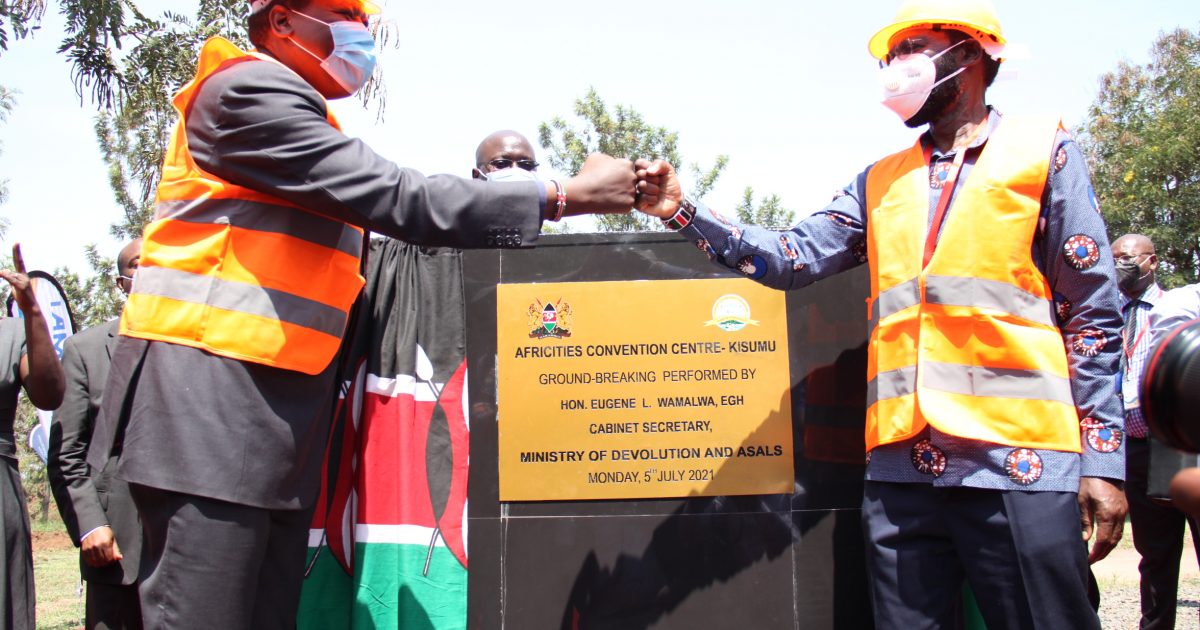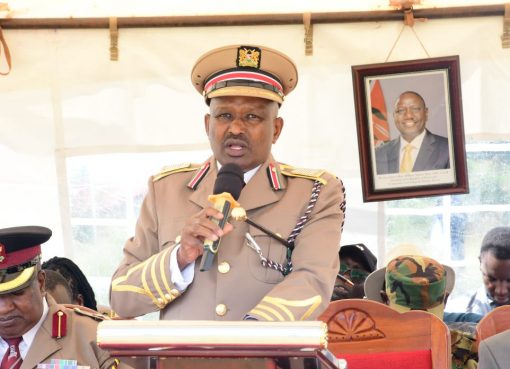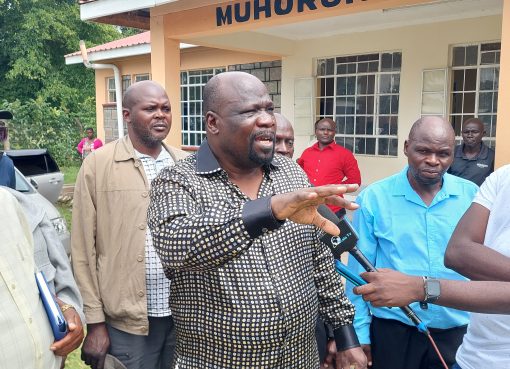The government has embarked on construction of a Sh1.4 billion Convention Center in Kisumu to host over 5, 000 delegates during the Afri-Cities conference to be held in the lake side city in April next year.
The facility comprising the main auditorium, 15 breakaway rooms, 60 exhibition spaces, outdoor amphitheatre, VIP lounge, cultural centre, health centre, press rooms, picnic area and a children’s park is expected to be completed in eight months.
Devolution Cabinet Secretary Eugene Wamalwa said the facility which is the second one of its kind in the country after Kenyatta International Convention Centre (KICC) in Nairobi was set to revolutionize conference tourism within the lake region.

Speaking at Mamboleo Show Ground in Kisumu during the ground breaking ceremony, Wamalwa said the iconic facility whose design is deeply rooted in the Luo Culture shall serve Kisumu and the Lake region beyond the Afri-Cities conference.
“This facility will not only serve the Lake region counties but with the revival of lake transport we are looking to have our brothers from Uganda and Tanzania bring meetings here,” he said.
The government, he added, was committed to making the Afri-Cities conference slated for April 26-30, 2022 a success adding that various other projects were on course in the area to ensure that it runs smoothly.
He pointed out the upgrading of Kisumu International Airport to accommodate the high number of visitors expected in the city to attend the conference.
A road linking the airport to the Convention Center through Uzima University, he added, was also being upgraded to bitumen standard to facilitate free flow of guests.
The Ministry of Tourism, he said has already mapped out hotels and accommodation facilities within Kisumu and neighbouring counties where the guests shall stay during the five days event.
So far, he said 8, 000 beds have been secured urging investors to take advantage of the opportunity and put up more facilities ahead of the conference.
The government, he disclosed, plans to take advantage of the conference to demonstrate the success of devolution and at the same time showcase investment opportunities in the lake region.
“So many people are asking how we managed to set up 47 county governments within eight years. We intend to use this opportunity to showcase the importance of sub-national governments in development,” he said.
Devolution Principal Secretary (PS) Julius Korir said Kenya has already paid 2.5 million Euros to United Cities and Local Governments of Africa (UCLGA), the franchise holders for the event.
Adequate measures, he said, have been put in place to ensure that the conference is held in strict adherence of the Covid-19 protocols.
All guests, he said, shall be required to produce Covid-19 negative certificates adding that the health center at the convention facility shall be equipped with the necessary infrastructure to address any cases that may arise.
Kisumu Governor Prof. Peter Anyang Nyong’o lauded the national government for investing in the conference facility.
The facility, he said, is expected to attract business travelers and meetings from far and wide as Kisumu repositions itself as the regional economic hub.
“This is not a Kisumu affair because it is going to serve all the counties within the lake region and across the borders,” he said.
Kisumu, he added, was prepared for the event adding that the successful Madaraka Day celebration held in the area was a demonstration of the city’s readiness to host big events.
Director of Urban Development in the Ministry of Housing Charles K’Onyango who designed the convention center said the facility which will be handed over to the County government of Kisumu has a huge potential of generating on source revenue.
Projections, he said indicate that the facility once fully operational has the potential of generating up to Sh1.6 billion over six years.
Afri-cities is the United Cities and Local Governments of Africa’s (UCLGA) flagship pan-African event that is held every three years in one of the five regions of Africa.
The event attracts communities and local authorities in African countries, as well as financial institutions, civil society groups and development partners at continental and international level.
By Chris Mahandara and Meredith Onyango





